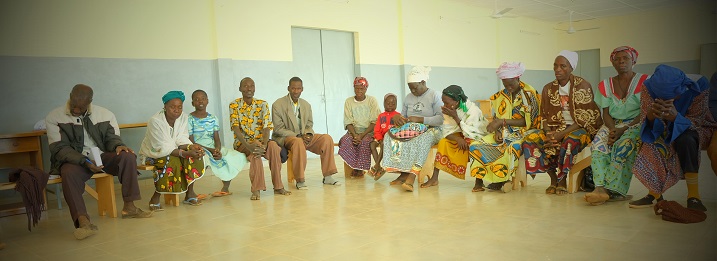 WEND BE NE DO was born of a united spirit between Burkina Faso and Spain by means of the Charles de FOUCAULD fraternities. To go to the last, to be with them, to work for them, to place ourselves on the periphery of the comfortable world in which we live day by day, is a challenge which the Tienda Asilo Foundation of San Pedro de Cartagena has taken on seriously since 2005 and, likewise, all the people, organizations, institutions and parishes who have helped and continue to help us to carry on the project that charms, that makes you feel that it is worthwhile working for the people of Burkina Faso and especially for the children, adolescents, youths and adults of WBND in the area of Bam, who are affected by HIV-AIDS. We can see that the project is spreading, that it is growing that the people are getting better, that it is like a big family that leaves nobody out. It is a human space where you don’t feel foreign even if our skin betrays that we are Westerners.
WEND BE NE DO was born of a united spirit between Burkina Faso and Spain by means of the Charles de FOUCAULD fraternities. To go to the last, to be with them, to work for them, to place ourselves on the periphery of the comfortable world in which we live day by day, is a challenge which the Tienda Asilo Foundation of San Pedro de Cartagena has taken on seriously since 2005 and, likewise, all the people, organizations, institutions and parishes who have helped and continue to help us to carry on the project that charms, that makes you feel that it is worthwhile working for the people of Burkina Faso and especially for the children, adolescents, youths and adults of WBND in the area of Bam, who are affected by HIV-AIDS. We can see that the project is spreading, that it is growing that the people are getting better, that it is like a big family that leaves nobody out. It is a human space where you don’t feel foreign even if our skin betrays that we are Westerners.
Author Archives: Fraternidad Iesus Caritas
(Español) Víctor GODOY, Chile. Testimonio de la Semana de Nazaret, febrero 2017
Becoming brothers, Fraternities USA, winter 2016
The way of Blessed Charles is not an easy spirituality to live out. But it is a beautiful way – to walk with Jesus step- by-step as a faithful disciple. My life has been wonderfully enriched as I walk this way with my brothers in fraternity. To be aware of the way of the Incarnation, the way of Nazareth; to be aware of a God who loves us so very much that, as Creator of all, he was willing to become creature; is to be aware of a love so great that it must be shared, especially with those on the peripheries of such love.
The primary content of this newsletter shares with you the International Fraternity’s “Letter from Kansas City.” The International Council calls us to be more aware of the charisms of Bl. Charles and how his spirituality can enrich our life and ministry as diocesan priests. What does this rather odd French hermit in the Sahara have to teach us? He may have been ordained, but he never lived a life that was anything like a normal diocesan priest – if there is such a thing as “normal.” Yet, the life of Charles De Foucauld was centered on God and was animated by prayer and humble service. This is a good foundation for anyone who wishes to live a life of missionary discipleship.
Read the entire document (PDF): JesusCaritas_NLWinter2016_1220


